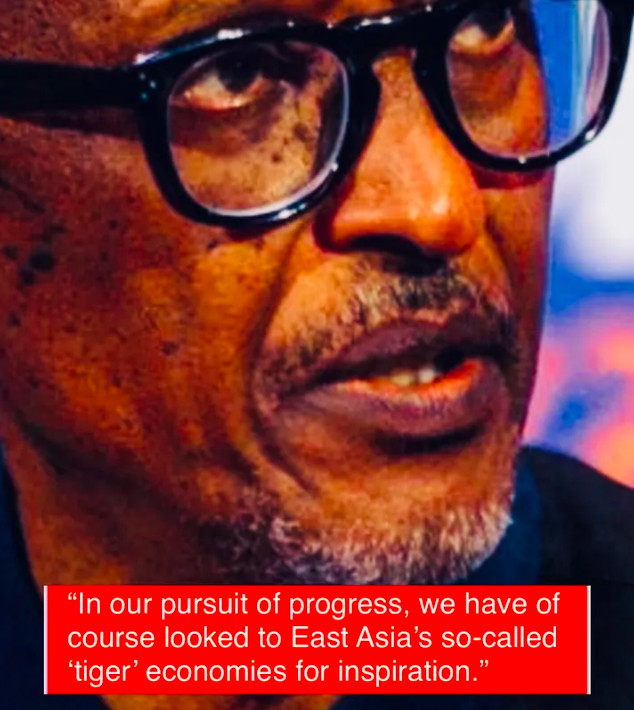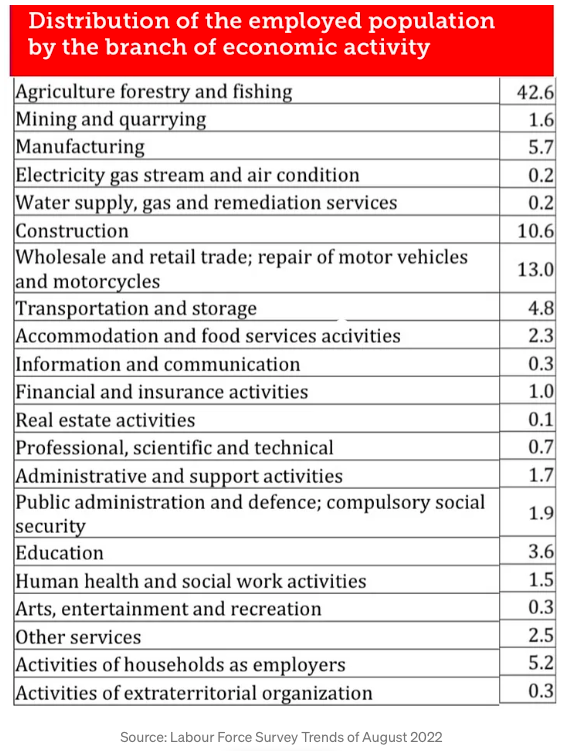By David Himbara
Lo and behold – Rwanda’s formal economy employs only 9.6 percent of the country’s workforce. The rest of Rwanda’s workforce comprising 90.4 percent eke out a living in the informal economy. Informal employment is defined by the International Labour Organization (ILO) as work that “in law or in practice, not subject to national labour legislation, income taxation, and social protection.” Vital employment benefits such as pension, advance notice of dismissal, maternity leave, severance pay, paid annual or sick leave do not apply to the informal workplace. In short, the workforce of the informal economy is synonymous with impoverishment and hazardous working conditions. Employment protection of any kind is virtually non-existent in the informal sector.
The informal economy in Rwanda, a country led by General Paul Kagame for the past three decades, is collosal and all-encompassing. The 2021 National Institute of Statistics of Rwanda’s Labour Force Survey, Annual Report, published in March 2022, reveals the following:
“There were in total 2,981,209 persons with informal employment at main job constituting almost 90.4 percent of total employment.”
Shockingly, even Rwanda’s formal economy employs informal workers. As described by the 2021 Rwanda’s Labour Force Survey, “a significant result was the presence of some 131,529 persons with informal jobs in formal sector.”
According the Labour Force Survey Trends of August 2022, the percentage distribution of the employed population in Rwanda by the branch of economic activity is as follows:
As shown in the above table, the largest masses of employed population in Rwanda eke out a living in Agriculture, forestry and fishing to the tune of 42.6 percent. Wholesale and retail trade, repair of motor vehicles and motorcycles absorbs 13 percent, followed by construction at 10.6 percent. Manufacturing and household domestic workers are almost tied at 5.7 percent and 5.2 percent respectively.
What goes on in General Kagame’s head when he sees this depressing data compared to his fantasies of following the footsteps of Asian tigers in transforming Rwanda? Here is one of his most infamous boastings:
“We have decentralized the state, reformed our business sector and strengthened our institutions…There is a view that development is a marathon, not a sprint. We do not agree. Development is a marathon that must be run at a sprint. In our pursuit of progress, we have of course looked to East Asia’s so-called ‘tiger’ economies for inspiration.”
This is Kagame and the art of the big lie – staggeringly deceptive. The delusions of grandeur continue unabated in the Kagame republic. The bigger the falsehood, the better. Stay tuned.
































































